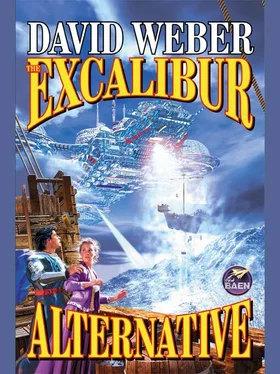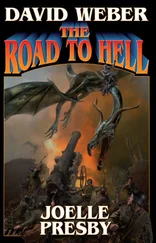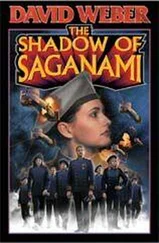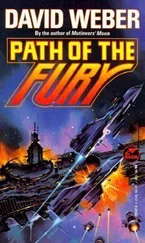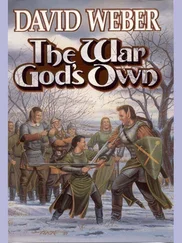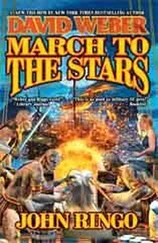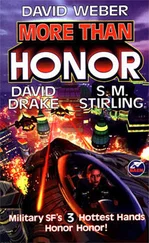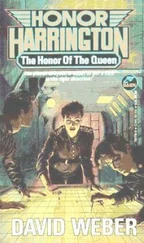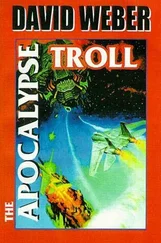David Weber - The Excalibur Alternative
Здесь есть возможность читать онлайн «David Weber - The Excalibur Alternative» весь текст электронной книги совершенно бесплатно (целиком полную версию без сокращений). В некоторых случаях можно слушать аудио, скачать через торрент в формате fb2 и присутствует краткое содержание. ISBN: , Издательство: Baen Publishing Enterprises, Жанр: Фантастика и фэнтези, на английском языке. Описание произведения, (предисловие) а так же отзывы посетителей доступны на портале библиотеки ЛибКат.
- Название:The Excalibur Alternative
- Автор:
- Издательство:Baen Publishing Enterprises
- Жанр:
- Год:неизвестен
- ISBN:0-671-31860-8
- Рейтинг книги:4 / 5. Голосов: 1
-
Избранное:Добавить в избранное
- Отзывы:
-
Ваша оценка:
- 80
- 1
- 2
- 3
- 4
- 5
The Excalibur Alternative: краткое содержание, описание и аннотация
Предлагаем к чтению аннотацию, описание, краткое содержание или предисловие (зависит от того, что написал сам автор книги «The Excalibur Alternative»). Если вы не нашли необходимую информацию о книге — напишите в комментариях, мы постараемся отыскать её.
The Excalibur Alternative — читать онлайн бесплатно полную книгу (весь текст) целиком
Ниже представлен текст книги, разбитый по страницам. Система сохранения места последней прочитанной страницы, позволяет с удобством читать онлайн бесплатно книгу «The Excalibur Alternative», без необходимости каждый раз заново искать на чём Вы остановились. Поставьте закладку, и сможете в любой момент перейти на страницу, на которой закончили чтение.
Интервал:
Закладка:
No one except the Kulavo, that was.
Mugabi knew far too much about the impossible disparity in the balance of power between humanity and the Federation not to be grateful for the traditional Kulavo obstructionism. Anything that held that power in check had to be a good thing from the human race's perspective, but even so, there was something particularly galling to him about admitting that his own race owed at least the last two or three centuries of its existence to an entire species of professional hypocrites.
Galling or not, it was unquestionably fortunate that the Kulavo had been one of the three original founding races of the Federation... and had no intention of allowing anyone ever to forget it. It was probably equally un fortunate, though, that neither of the other two founding species were still around. The current crop of Galactics was more than a little vague about precisely what happened to the two extinct Founders, and whatever had happened to them had taken place so long ago that none of the humans' sources had been able to shed any light upon the question. Mugabi had his own theory about their disappearance, however, and he knew that most of the Office of Naval Intelligence's analysts shared it.
And ONI had managed to amass quite a bit more information about the Galactics and their history than the Council probably realized, the admiral reflected. The Federation had a highly developed sense of paranoia where anyone who might challenge the stability of its beloved status quo was involved, yet there was a curious disconnect between that paranoia and the security measures it produced. No doubt a lot of that was produced by the millennia-long stability which was so precious to the Galactics and which humanity found so incomprehensible. No Terran government could have survived for so long without at least an occasional reexamination and revision of its security arrangements. The dogged inventiveness with which its opponents would have sought out ways around those arrangements would have seen to that! But the Galactics, for all their endless backstabbing and machinations, appeared to have absolutely no equivalent of the human willingness—or ability—to seek advantage by cheerfully manufacturing new approaches to old problems. The races which owned the Federation were all fanatical rules lawyers, but once they'd agreed upon what the rules were (and they had rules which detailed even the proper and acceptable ways to commit treason), they clung to them with death-grip intensity. Their rules did change, of course. Not even the Galactics could maintain something the size of the Federation in an absolute state of true stasis, however much they longed to do so. But the changes were always small, incremental ones... and occurred at such a glacial pace that two or three thousand years might pass between them.
Because of that, human intelligence services had managed to penetrate the Council's security far more completely than the Galactics even began to suspect, despite the enormous difference in the technological capabilities of the two sides. It helped that many of the "protected" races who served the Federation's owners hated their masters so bitterly that they were more than willing to feed the upstart humans information whenever possible. Indeed, the human analysts' greatest handicap had been the sheer mass of data available to them once access was gained. The Federation was a compulsive keeper of records, with a pure and simple delight in bureaucratic excess which no terrestrial government had ever approached. Given the sheer length of its existence, that had produced a store of information which far exceeded the storage capacity of any human archive and made any systematic examination of it a Syssiphean task.
Despite that, humanity had managed to determine a great deal about the Federation and its history. For one thing, it was apparent that the Council's moral posturing stemmed from its original Constitution, which had almost certainly been created by one or both of the two since vanished Founders. Certainly no one in the current crop of "superior species" which ran the Federation would have bothered with any of the moral or ethical nonsense incorporated into that Constitution. It was even possible, although even such an open-minded soul as Mugabi found it difficult to truly believe it, that the original Federation actually had believed it had some sort of moral obligation to look after less advanced races. God knew humanity had come close enough to wiping itself out once weapons of mass destruction became available to it, so perhaps there truly was something to be said for keeping a sort of semi-parental eye on developing races until they got through the danger zone and learned to survive their own technology.
But if that had been the original purpose of the Federation and its Constitution, it was a purpose which had been corrupted into something else long, long ago. Given the degree to which that self-serving something else promoted naked aggression and exploitation, Mugabi rather doubted that the Founders whose purpose had been twisted would have been very happy about it. Which, in turn, suggested at least one very plausible (and grim) explanation for why two of them were no longer around.
At the same time, however, the incredible love of stability which was so much a part of the Federation had preserved at least the form of the original Constitution. If nothing else, it was far too valuable as a pretext and a justification for extending the iron fist of the Council's power over every upstart species which might have threatened its beloved stagnation for the Galactics to do anything else. And the Kulavo, as the only one of the original Founders still in existence, had staked out a claim to the moral high ground in any policy debate almost a thousand centuries before humans had learned to kindle fire.
The xenologists kept warning Mugabi that it was both dangerous and inappropriate to attribute human motivations and viewpoints to nonhuman species, but the admiral had long since decided that he would go right on doing so as long as the practice allowed him to make accurate predictions of those species' actions. So far, the model had worked just fine, as long as he was careful to incorporate a sufficient degree of amorality into his calculations. And in this instance, he found himself wondering which was the more remarkable—the totality with which the Kulavo seemed to have convinced themselves of their own sincerity, or the degree to which their fellow Council members resented and despised their towering hypocrisy.
In either case, he suspected that the Kulavo's moral posturing would be their own eventual downfall, although it would never happen in time to save humanity. In the meantime, however, the Kulavo clung to the highly vocal purity of their motivations and refused to rush to judgment on any issue... unless their own interests were immediately threatened, of course. And since their status as the sole surviving Founder gave their collective ego a towering splendor which not even the other Galactics could match, they had been disdainfully unwilling to concede that something as insignificant as humanity could possibly have been a threat to them .
The data available to the Terran analysts suggested that they'd begun to change their minds as much as two or three centuries ago, but, like any self-respecting Galactic, they had declined to rush to judgment. Besides, they'd staked out their customary moral position, and finding ways to modify that without the loss of face inherent in abandoning their self-proclaimed principles had required the odd hundred years or so.
The Daerjek were another matter entirely. Even for Galactics, the Daerjek were a conservative lot. Indeed, Mugabi often wondered how they had ever managed to accept such a radical concept as the wheel. There was never any true need to ask the Daerjek for their position on any decision which came before the Council, because that position was always the same. Any alteration in any Federation policy was automatic anathema to them, and they were perfectly happy embracing any justification for resisting changes. They saw no particular need to be consistent in their justifications, but as it happened, the Kulavo's insistence on "carefully weighing the moral aspects" of any policy decision made them natural partners in obstruction.
Читать дальшеИнтервал:
Закладка:
Похожие книги на «The Excalibur Alternative»
Представляем Вашему вниманию похожие книги на «The Excalibur Alternative» списком для выбора. Мы отобрали схожую по названию и смыслу литературу в надежде предоставить читателям больше вариантов отыскать новые, интересные, ещё непрочитанные произведения.
Обсуждение, отзывы о книге «The Excalibur Alternative» и просто собственные мнения читателей. Оставьте ваши комментарии, напишите, что Вы думаете о произведении, его смысле или главных героях. Укажите что конкретно понравилось, а что нет, и почему Вы так считаете.
